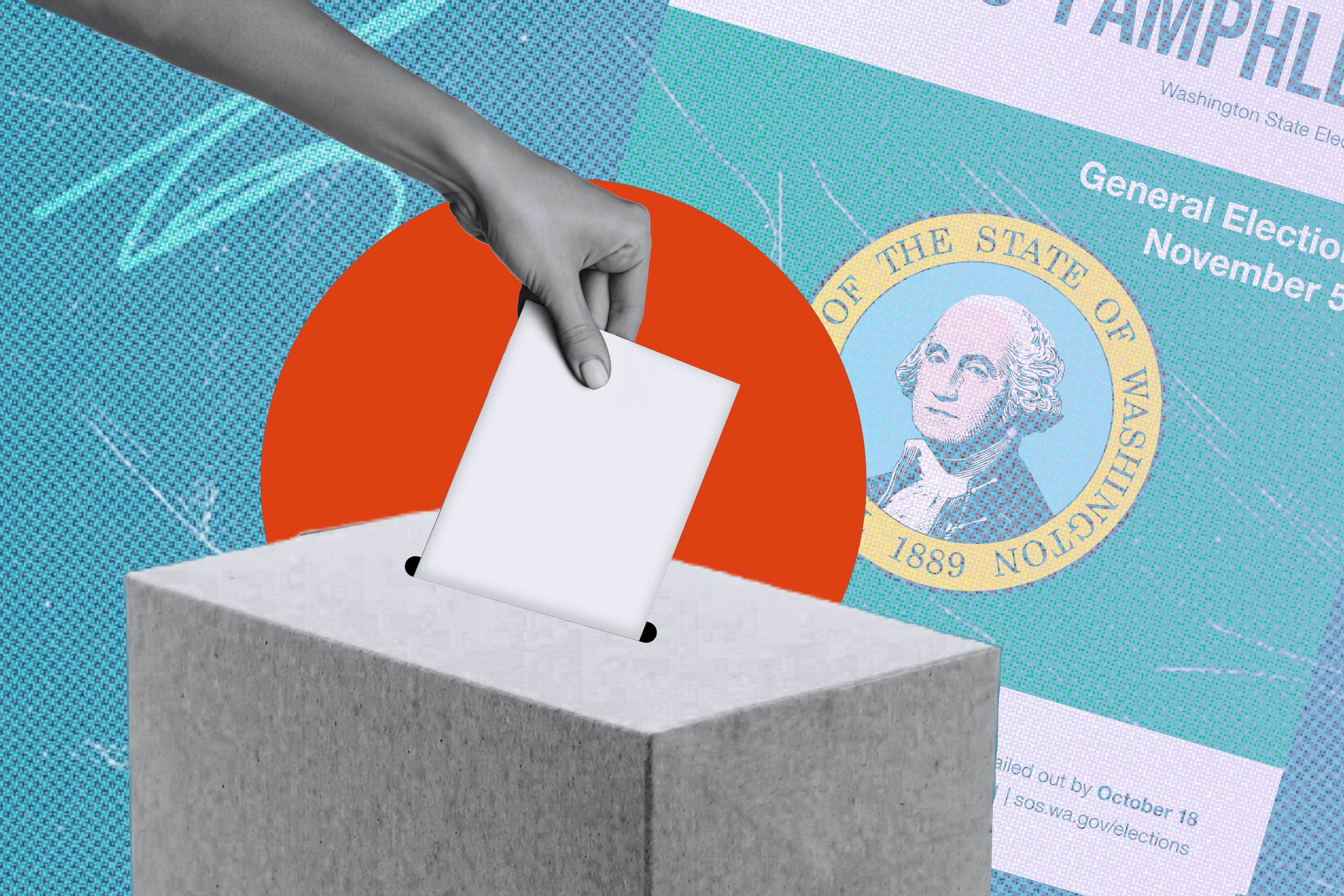Nobody’s Coming to Rip Your Gas Stove Out

Image: Seattle Met Composite
Washington State’s ballot initiative program has put the state on the leading edge of some of the most important social movements in recent history, including legalizing same-sex marriage and adult-use cannabis. It also brings an annual parade of weird, confusing, and sometimes obstructionist proposals to the people. This year, that includes Initiative 2066, a complex energy planning bill with many different elements that do various things, none of which—contrary to what you might have heard—involves banning gas stoves.
The bill’s backers have capitalized on the fear of a ban on gas, particularly gas stoves, to bring “the government's coming for my guns” energy to the “I need a gas stove to get proper wok hei and perfect my bouillabaisse” crowd.
“Nothing in Washington law forces anyone to give up their gas stove if they want to keep it,” says Emily Moore, the director of climate and energy at Sightline Institute, a nonprofit, nonpartisan policy research organization. “There's nothing in Washington law that says you can't [keep your gas stove], and this initiative doesn't change that.”
Let’s Go Washington, which is behind the initiative (and three others on the ballot) sums up the bill as “Stop the gas ban.” Currently, there is no ban on gas in place, nor is such a ban imminent. What the initiative does (among other things) is codify that authorities at city and state levels cannot prohibit, penalize, or discourage the use of gas in buildings.
So yes, I-2066 cements that no ban can exist in the future, but it also goes far beyond that, repealing the parts of the state building code that incentivize electric heat pumps and require the energy code to work toward emissions-free new construction by 2031. While gas stoves are the sexy part, gas furnaces and boilers produce a significant part of Washington’s carbon emissions.
“They’re deliberately trying to frame this around something that does not even exist in state law,” says Leah Missik, the acting Washington state director for Climate Solutions, a nonprofit organization dedicated to accelerating clean energy solutions to the climate crisis. While Let’s Go Washington calls this protecting energy freedom, Missik argues that it actually does the opposite, taking away the incentives that help people who want to move away from gas appliances. “It is a direct attack on energy efficiency and modern building protections for new construction, and it prevents our state's largest utility from planning for the future.”
As is often the case with Washington’s complex initiatives, it’s hard to know much about what you’re voting on from either the one-sentence description on the ballot, or the full text of the bill, a 22-page word salad. “The way this initiative’s written is it's very broad and sweeping, and your only choice is yes or no,” says Missik.
Some of that is inherent in the process of citizen-led initiatives, which allow for a single person with a big enough megaphone—or wallet—to get their pet project on the ballot. For years, that was Tim Eyman, the rabble-rouser whose annual initiatives often elicited eye rolls and occasionally crippled the state’s budget.
The last few years, it’s been hedge fund manager Brian Heywood and his organization, Let’s Go Washington. Heywood spent millions of dollars of his own money paying signature collectors to get I-2066 and three other measures on the November ballot, though the methods they used to do so are under investigation by the Washington State Public Disclosure Commission.
Heywood’s aggressive, multipronged initiative drives are almost enough to make us miss Eyman. Who, if you were wondering, ran afoul of the rules of that same Public Disclosure Commission, leading to a judge’s ruling that prohibits him from having financial control over political committees, and imposed heavy fines, forcing him out of his home and into bankruptcy.
No word on if that home had a gas stove or not, but rest assured, if it did, nobody’s coming to take it away.




